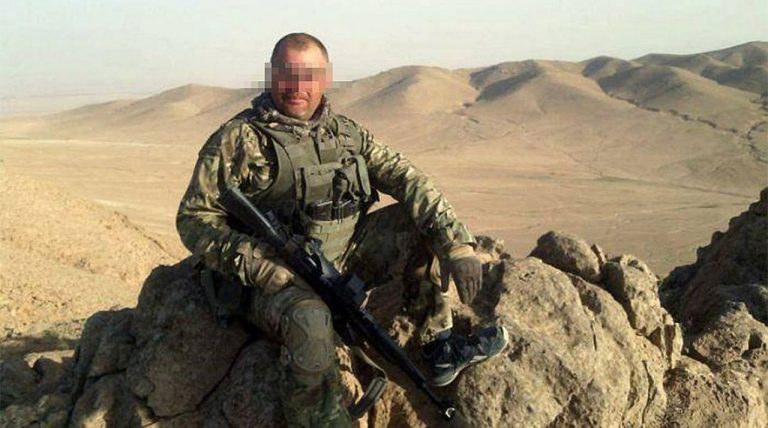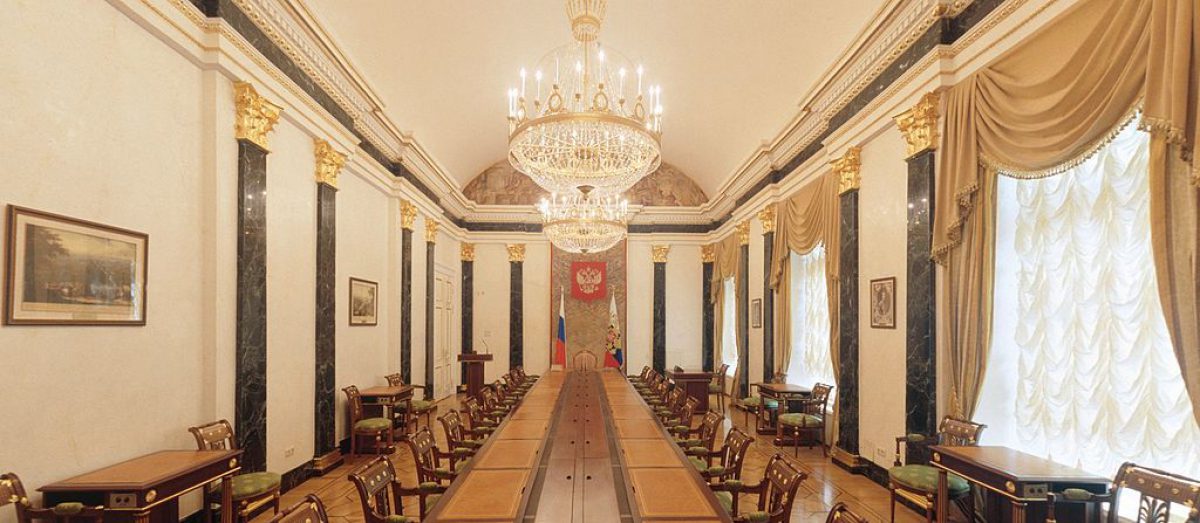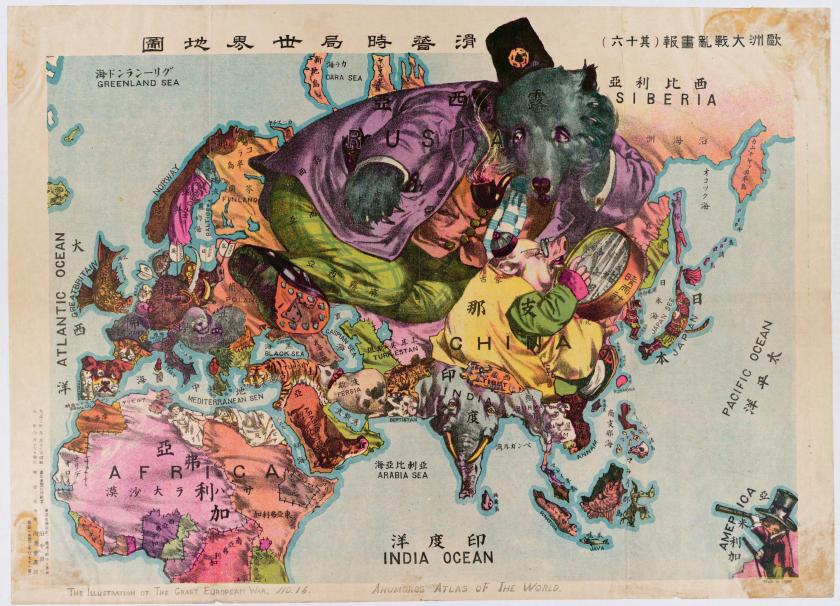
On 27 March 2018, the Kremlin notified the State Duma that it disapproved of a draft law seeking to regulate Russian private military companies (PMCs). The draft law in question, submitted this past January by deputies associated with the social democratic “A Just Russia” (SR) party, proposes placing the Ministry of Defense (MoD) in charge of licensing PMCs, as well as harmonizing their legal status with relevant provisions of the Russian Constitution and Criminal Code. The bill also mandates that PMCs must be registered as private limited companies, or “obshchestva s ogranichennoj otvetstvennost’yu” (OOO), and must maintain an initial capital of no less than RUB 10 million (approximately USD 174,600).
Articulating the legal basis behind its position, the Kremlin argued that the abovementioned bill violated Article 13.5 of the Russian Constitution, which, among other proscriptions, prohibits the establishment and activity of OOOs engaged in the creation of “armed formations.” Russian media report that the bill is also opposed by the MoD, the Ministry of Finance, the Ministry of Internal Affairs, the Russian Guard, the Federal Security Service, the Investigative Committee of the Russian Federation, the Federal Protective Service, and the General Prosecutor’s Office.
As noted above, the SR draft law on PMCs was introduced in January 2018. That same month, Russian Foreign Minister Sergei Lavrov spoke out in favor of creating a legislative basis for PMC activities after Grigoriy Tsurkan, a Russian mercenary working for the PMC known as“Wagner,” was executed by the Islamic State. A month later, hundreds of Russian contractors affiliated with Wagner were reportedly killed by U.S. aircraft and artillery fire during a joint assault with pro-Assad militiamen on a Kurdish-held oilfield in eastern Syria.
This latter debacle has prompted a great deal of speculation regarding how PMCs like Wagner might factor into Putin’s broader foreign policy stratagem. Some have asserted that the Kremlin uses contractors working for Wagner and other PMCs in order to provide plausible deniability of its ongoing military operation in Syria, which has the additional benefit of watering down the actual number of Russian casualties, thus avoiding irritating domestic audiences already wary of Russia being drawn deeper into the Syrian quagmire. Others maintain that the Kremlin has, in fact, effectively ceded operational control over the activities of Wagner and other PMCs to their respective shareholders, allowing the latter to pursue their own commercial interests — at least, so long as those interests demonstrably coincide with the Kremlin’s own interest in ensuring the survival of the Assad regime.
Indeed, leaked documents indicate that OOO Evro Polis (Tax Identification Number 5024166727) – a Moscow Oblast-based entity affiliated with Wagner principal and Putin ally Yevegeny Prigozhin – was contracted by the Syrian government to secure Syrian oilfields in exchange for a 25% stake in the profits produced by same fields. Prigozhin was reportedly in contact with Putin’s Chief of Staff, Anton Vaino, the day prior to the February incident, the existence of this contract strongly suggests that OOO Evro Polis provides PMC services abroad with the Kremlin’s imprimatur. So much was reflected by the US Treasury Department’s decision to impose sanctions on OOO Evro Polis in January 2018. Yet here it is also worth noting that Treasury imposed separate sanctions on Wagner – identified simply as “PMC Wagner,” with no Tax Identification Number given – back in June 2017. This begs the question: if OOO Evro Polis is understood to constitute a legal entity qua being an OOO distinct from Wagner, then what is Wagner?
One possibility may be that Wagner is the trade name that OOO Evro Polis employs when providing PMC services abroad. Yet per Article 1538 of the Russian Civil Codex, Russian companies are not required to register trade names with state organs; as such, there is no way to verify whether Wagner and OOO Evro Polis are one and the same entity. Corporate records do show that OOO Evro Polis registered a branch office in Damascus on 25 May 2017, but this too does not definitively tie the company to Wagner. Adding to the confusion, some media outlets have conversely characterized OOO Evro Polis as being a front for Wagner, which can be interpreted as meaning that Wagner is behind OOO Evro Polis. Whatever the case, all available information suggests that Wagner does not represent a private military company, at least not in sense of being a corporate entity registered with the Russian Federal Tax Service or any other competent economic authorities.
The fact that Wagner and similar PMC entities all appear to operate on behalf of the Russian state, and not against it, thus undermines the legal argument behind the Kremlin’s opposition to the SR draft law. For all intents and purposes, Wagner and its contemporaries occupy a legal gray zone in Russia. Because they are not legal corporate entities as such, their operations technically do not violate Article 13.5 of the Russian Constitution. Moreover, some Russian legal commentators have interpreted Article 13.5 as applying only to entities (commercial and other) that organize armed activities with the aim of violating Russia’s territorial integrity and/or fomenting internal unrest. Given that the SR bill provides for MoD oversight of PMCs, there ought to be a limited risk of legal status being granted to PMCs bent on overthrowing the Russian government.
For this reason, it is curious that the Kremlin based its opposition to the SR draft law on Article 13.5 of the Russian Constitution, especially considering that Article 359 of the Criminal Code of the Russian Federation explicitly prohibits mercenary activities. Article 359 defines mercenary activities as “the recruitment, training, financing or other material support of a mercenary,” and prescribes punishments ranging from four- to fifteen-year jail terms and/or fines up to RUB 500,000 (approximately USD 8,720). Russian courts have handled cases involving Article 359 offenses on numerous occasions since 2013; however, the majority of these legal actions were undertaken against defendants accused of involvement with Ukrainian nationalist militias or with Syrian militant groups opposed to the Assad regime (see the Slavonic Corps case). In other words, the Russian government’s application of Article 359 may be generously described as selective, if not politically biased.
One could argue that the Kremlin opposes legalizing PMCs precisely because their indeterminate legal status amounts to a feature, and not a bug, of their utility vis-à-vis creating plausible deniability for Russian military and intelligence operations abroad. There is much to recommend this thesis from a tradecraft perspective. However, there is no less reason to surmise that Putin and certain of his allies fear that placing PMCs under MoD jurisdiction would leave them vulnerable to a shadow coup staged by proxies of the military and national security establishment. At the very least, this would certainly make for a good Tom Clancy thriller.
Whatever the case, SR is by no means the only group in Russia seeking to create a legal basis for PMCs. Interest groups like the Moscow-based Association of Military-Security Companies, for example, have increasingly lobbied the Kremlin to resolve the legal status of PMCs and other armed security firms, arguing that legalizing their activities would be a value-add in terms of Russia’s military and counterterrorism capacities. Even so, the costs of regulating the PMC industry may well outweigh any such benefits, not least being the reputational risk associated with passing legislation contravening the International Convention against the Recruitment, Use, Financing and Training of Mercenaries. Even though Moscow is not a party to this convention, adopting such a measure would only serve to further weaken Russia’s already diminished credibility as a guarantor of international law.
Perhaps Putin, emboldened by his all-too-convincing victory at the polls earlier this month, will test the waters of economic liberalization during the first hundred days of his fourth presidential term by legalizing Wagner and others of its ilk. The fact that no less a hardliner than Foreign Minister Lavrov supports legalizing PMCs over the objections of the Russian security establishment suggests that this particular issue may emerge as a new front in the perennial competition between the siloviki and reformist camps of Politburo 2.0. Or perhaps there is room for compromise – an arrangement where, to paraphrase Mao, market reforms might grow out of the barrel of a gun.
– Allen Maggard

